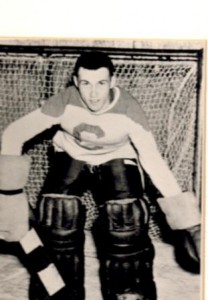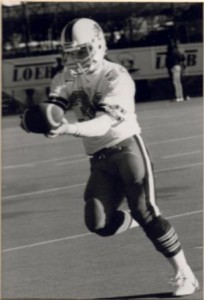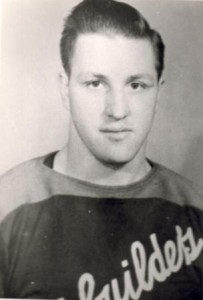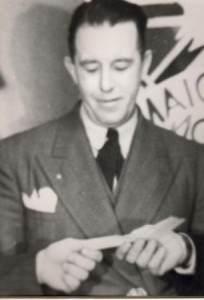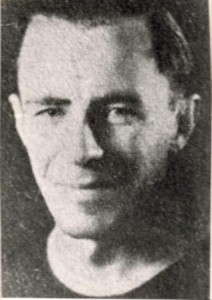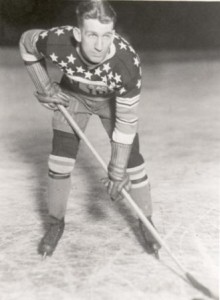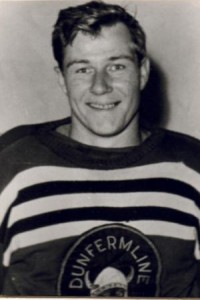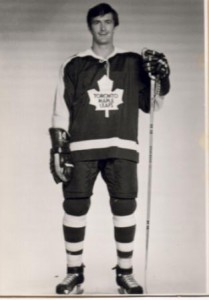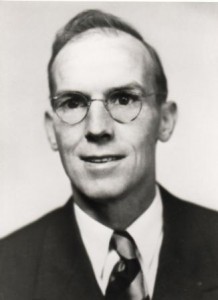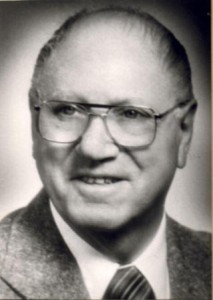 Big Don Jeffery, long time manager of the Collingwood Community Arena, was a born
Big Don Jeffery, long time manager of the Collingwood Community Arena, was a born
diplomat.
He had to be to keep everybody happy in the day to day operation of the town’s
main recreation centre.
For a quarter of a century, Don wrestled with the problems of the Figure Skating
and Adult Skating Clubs, junior, intermediate and senior hockey organization,
community skating and hustling attractions to pay the light bills during the
off season.
On top of that he had to keep the Collingwood Council and the Arena Commission
happy by keeping the budget under control.
Since 1955, until his retirement in 1981, he served under five Mayors and eight Arena
Commissioners. “Jeff” was a police force in himself. It was a familiar sight to watch him elbowing a path through a hockey crowd to get to the scene of a disturbance in the seats. Usually, he managed to smooth things out by appealing to reason but if he was forced to use muscle he had the equipment. Even if the trouble makers were inflamed with the grape, they thought twice before tangling with his 6 feet 1 inch-230 pound frame and the courage to match. Jeff believed in that old adage,” Speak softly but carry a big stick.”
Besides running the rink, he served on the executive of the junior and intermediate teams. Born in Collingwood, Jeff’s own active playing career spanned a decade. He played on Collingwood Junior O.H.A. clubs in 1936 and 1937 and then jumped to the Senior “A” ranks with Amour Mines in 1938. That team was ousted by the famed
Kirkland Lake Blue Devils who went on to win the Allan Cup.
He came back to his old home town in 1939 to help Bern Brophy and the Collingwood
Shipbuilders win the O.H.A. Intermediate “A” title. Jeff was on the move again the following year with St. Catherine’s and that team went to the O.H.A. Senior “A” finals against a strong Toronto Goodyear team.
He returned home in 1941 with the Shipbuilders where his active career came to an end after a serious eye injury in a game with the Orillia Terriers.
Before his appointment to the manager ship of the arena he served as bench manager
under Coach Eddie Bush when the Shipbuilders won the Intermediate “A” title in 1951 and 1952.
Right from the start Jeff made it a point to try to keep the arena open to the public
the year around. The building closed for only two weeks during the early summer
when his staff painted the building from stem to stern.
During his tenure as arena manager he supervised many new additions to the complex and instigated the plan to add blocks of new seats every year. During the last ten years the renovation plans included a new floor and roof, new sideboards and glass backstops.
Don Jeffery is a welcome addition to the Sports Hall of Fame. He earned his induction as an Athlete and Builder.

